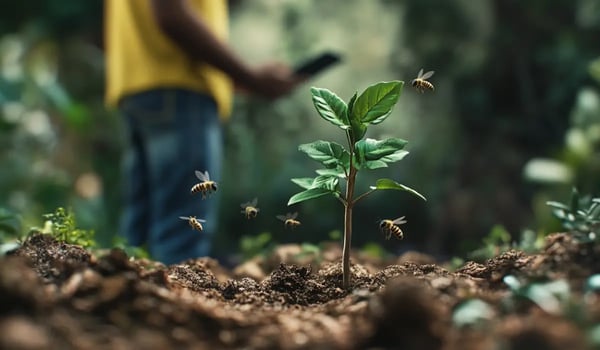Sri Lanka has introduced a new nationwide effort to strengthen its recycling infrastructure with...
Pioneering the Plastic Credit Revolution: A Catalyst for Change in Waste Management
As the world grapples with an escalating plastic crisis, generating approximately 390 million tonnes of plastic waste annually, the imperative for innovative solutions has never been clearer. The vast majority of this waste remains uncollected and unrecycled, leading to significant environmental degradation and health risks, particularly in underserved communities. Amid this challenge, Verra's introduction of the Plastic Waste Reduction Standard (Plastic Standard) emerges as a beacon of hope, offering a complementary mechanism to drive substantial financial support towards enhancing global plastic waste management systems.
Bridging the Funding Gap with Plastic Credits
The Plastic Standard, through the issuance of Waste Collection Credits and Waste Recycling Credits—collectively known as Plastic Credits—embarks on addressing the plastic pollution crisis downstream, including the management of legacy plastic waste. These credits signify a critical leap towards enabling the creation of robust plastic waste collection and recycling infrastructures. Moreover, they serve as vital tools in mitigating environmental and health risks, complementing corporate plastic stewardship goals and advancing waste management priorities at both regional and global levels.
The Core of Verra's Plastic Standard
Verra's Plastic Standard is anchored in stringent quality assurance principles, ensuring the transparency, integrity, and verifiable impact of Plastic Credits. It encompasses a multi-stakeholder development process, adherence to ISEAL best practices, robust accounting methodologies, third-party verification, and a commitment to no transboundary movement of plastic waste. This comprehensive framework not only ensures the credibility of Plastic Credits but also guarantees their contribution to environmental sustainability and social well-being.
Transformative Change through Strategic Investment
Investment in Plastic Credit projects, facilitated by Verra’s Plastic Program, is not a mere financial transaction; it represents a long-term commitment to sustainable waste management infrastructure development. By directing funds towards projects with a crediting period of 7-21 years, companies can foster the establishment of durable, efficient waste management systems. This strategic investment is crucial for transitioning to a circular economy, where the value of plastics is maximized, and their lifecycle environmental impact is minimized.
Beyond Financial Support: The Comprehensive Value of Plastic Credits
The integration of Plastic Credits into a company's broader plastic waste management strategy offers a multi-faceted value proposition. It provides a pathway for companies to address the downstream impacts of plastic pollution, aligning with their value chain’s specific needs and contributing to their recycled content targets. Furthermore, by supporting projects that align with their plastic footprint and production regions, companies can make impactful, credible contributions towards reducing plastic leakage into nature.
Harmonizing Plastic Credits with Extended Producer Responsibility (EPR) Schemes
Plastic Credits hold the potential to enhance the effectiveness of EPR schemes, offering a complementary mechanism to incentivize the development of collection and recycling infrastructure. By integrating the characteristic principles of Plastic Credits—such as traceability, verifiability, and social and environmental safeguards—into EPR policies, the integrity of these schemes can be significantly improved. Verra's ongoing efforts to develop a framework for integrating Plastic Credits with EPR schemes illustrate a proactive approach to harmonizing voluntary and regulatory efforts in tackling plastic pollution.
Conclusion: Steering Towards a Sustainable Future
As the plastic crisis looms large, the innovative approach of Plastic Credits introduced by Verra's Plastic Waste Reduction Standard offers a glimmer of hope. By facilitating the mobilization of capital towards sustainable waste management solutions, Plastic Credits stand at the forefront of the battle against plastic pollution. They embody a transformative potential to bridge the funding gap, support the transition to a circular economy, and pave the way for a cleaner, healthier planet. This initiative not only underscores the critical role of collaborative, multi-faceted strategies in addressing environmental challenges but also sets a new precedent for corporate environmental stewardship in the 21st century.






